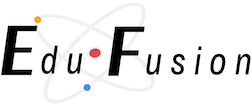Social interaction has been a component of learning from the beginnings of mankind and, to this day, we learn a great deal through observing and interacting with others. Bandura’s (1977) social learning theory pointed to that fact and described social learning as a process of interaction between cognitive, behavioral and environmental influences buttressed by the necessary components of attention, retention, motor reproduction, and motivation. Noteworthy is the fact that “because it encompasses attention, memory and motivation, social learning theory spans both cognitive and behavioral frameworks” (“Social Learning Theory (Albert Bandura)”, n.d., para. 2).
I find the prospect of harnessing the power of social interaction to help drive learning outcomes to be intriguing and exciting. Numerous studies have shown “a positive correlation between the use of social tools and learning” through facilitating “acquisition of new knowledge, continuous learning, increased students’ engagement [sic], and immediacy of learning with access to experts” (Lawson & Murray, 2018, p. 74). A review of the literature supports the overarching idea that social learning benefits students in online classrooms, with one study purporting that SNS (Social Networking Systems) is an effective tool from the standpoint of improving course final grades in online courses:
Based on the empirical evidence in this study, it is recommended that educators adopt some components of SNS as an instructional tool to improve students‘ performance (i.e., course final grade) and their sense of community, connecting, and learning. The results support the bulk of the literature in regard to the ability of community to facilitate learning gains. The adoption of some elements of SNS with possible increases in sense of community, connecting, and learning may help educators promote higher levels of learning and improve retention. (Woodward, 2012, p. 140)
Through my experiences as an online educator and student, I’ve gained anecdotal evidence that moves me to attest, as well. As an online student in a graduate degree program, I almost always felt that continuous collaboration and communication amongst my team members through social media channels outside of the classroom enhanced my learning experience. As an educator, I’ve observed learning teams with higher levels of collaboration using SNSs perform more effectively on their team assignments. In Woodward’s (2012) aforementioned study, students using SNSs earned an overall course score that was an entire letter grade above that of students not in the SNS group.
Collaborative learning just makes sense, doesn’t it? Take modeling as an example. Reflecting upon the person I am today, my Modus Operandi, I see that I am in many ways a complex makeup of traits, characteristics and attributes I found appealing in other people. Having models of various types empowered me to develop myself in this very natural approach to learning. Of course, a larger sample size of models invariably improves the potential net gain and this is one way in which collaborative learning can improve learning outcomes. Through observation and interaction, students learn not only how to approach discipline-specific problems and challenges but also have opportunities to identify a wide array of desirable qualities and attributes in others that they might choose to adopt.
If we accept the claim that Bandura’s theory presents, the next question centers on what we are doing and what we can do to promote social learning in our online classrooms. Given the plethora of SNSs to choose from, where to even start? I think excitement will overtake that feeling of being overwhelmed if you’ll join me at this BlogSpot on a monthly basis this year as I share thoughts on social learning and explore various SNS options. And do please share your thoughts! You can post a comment below or email me at the email link just below the comments section. I want to hear your thoughts!
References
Bandura, A. (1977). Social learning theory.New York: General Learning Press.
Lawson, S., & Murray, S. (2018). Assessing the effects social media has on online learning.Journal of Marketing Development and Competitiveness, 12(2), 69-75. Retrieved from https://search-proquest-com.contentproxy.phoenix.edu/docview/2108803066?accountid=134061.
Social Learning Theory (Albert Bandura). (n.d.). Retrieved from https://www.instructionaldesign.org/theories/social-learning/.
Woodward, J. M. (2012). Social networking systems as a vehicle to promote sense of community and performance in online classes (Order No. 3530745). Available from ProQuest Dissertations & Theses Global. (1113338129). Retrieved from https://search-proquest-com.contentproxy.phoenix.edu/docview/1113338129?accountid=35812.

